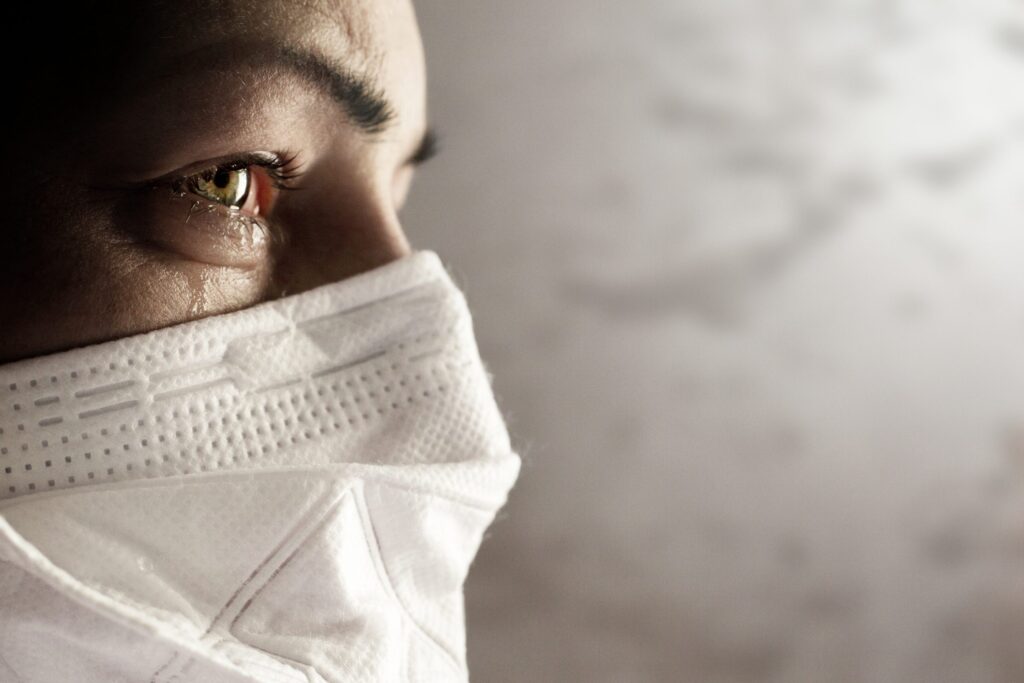Despite great news on COVID-19 complications in Lancet report, CNN inflames fears of COVID
April 12, 2021
In an article last week, CNN reported on a study published in Lancet Psychiatry that the news organization said tied COVID-19 to brain diseases.
But the reporting by CNN and other media needlessly inflated the long-term risks of COVID-19 complications by tying together the somewhat rare occurrences of neurological disorders with the much more common psychological disorders.
In fact, in its rush to create more fear about COVID, CNN and other media, missed the point that the report put to rest some lingering worries about long-term, serious and hard-to-treat side-effects of the virus.
Headlined, “A third of Covid-19 survivors suffer ‘brain disease,’ study shows,” sought to tie neurological and psychological diseases to a COVID-19 diagnosis, but failed to mention several important caveats.
“They observed that those with Covid-19 had a 44% increased risk for neurological and psychiatric illness compared to people recovering from flu. And they were 16% more likely to experience those effects compared with people with other respiratory tract infections,” said CNN.
In fact, the study shows that while about 3.3 percent of patients are at risk for neurological diseases –of about 33 percent total– the vast majority of “brain diseases” caused by COVID-19 were psychological.
“Out of a total of 14 brain disorders, mood and anxiety disorders were among the most common conditions the researchers saw, followed by substance use disorders and insomnia,” says AARP, which also somewhat hyped the fear side of the study.
“Neurological complications were rarer, with 2.1 percent of patients reporting ischemic stroke, 0.7 percent reporting dementia and 0.6 percent reporting brain hemorrhage.”
In fact, the study said that despite initial worries that the virus would cause severe neurological conditions like Guillain-Barré syndrome and post-encephalitic parkinsonism sometimes associated with other pandemics, the study found “that delayed neuropsychiatric sequelae …do not occur after COVID-19.”
Most importantly, according to the Lancet’s own analysis of the study, which CNN failed to quote, the psychological conditions found after COVID-19 are not caused by anything related to the mechanism of COVID-19 itself, but are an outgrowth other factors, like social conditions.
Social conditions would presumably include media coverage of COVID-19 that, like the story written by CNN, needlessly inflates the risk of COVID-19.
“This suggests that although almost all neurological and psychiatric outcomes were more frequent in patients with more severe COVID-19 than in those with mild disease,” says the Lancet, “these psychiatric disorders might be more driven by general effects, including psychosocial aspects of infection, rather than a direct effect of COVID-19 on the brain.”
For example, it would be reasonable to suggest that someone on a drug cocktail that was meant to induce comma might find it difficult to come down off the drugs later on when sent home, thus creating conditions for substance abuse or insomnia.
Knowing the mental health consequences of COVID-19 can actually help the medical community better prepare for the complications caused by the virus and perhaps prevent them.
While mental health conditions are just as real as neurological conditions quite apart from COVID-19, the medical community has a successful track record of ameliorating those conditions as opposed to more difficult-to-impossible to treat neurological conditions such as post-encephalitic parkinsonism and Guillain-Barré.
The Lancet report is very good news for our country and shouldn’t be used by CNN to further inflame fears of COVID-19.
There enough of that fear legitimately without having to stir up more.
